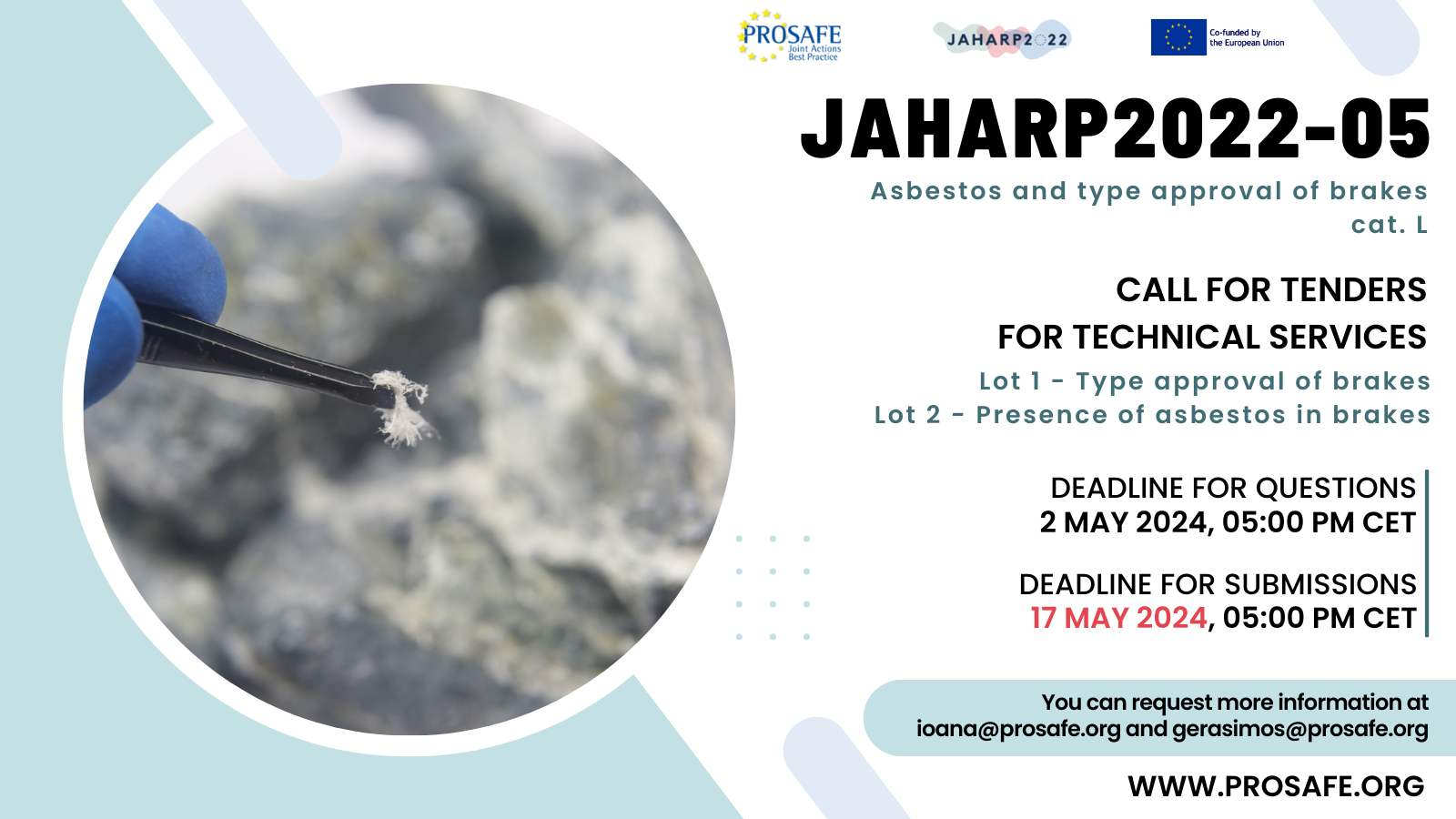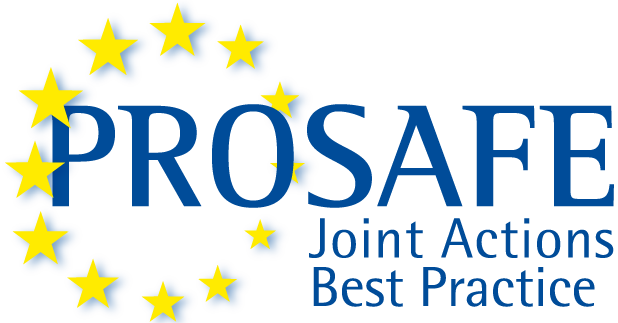Call for Tenders for Technical Services - JAHARP2022-05 Asbestos and type approval of brakes cat. L

PROSAFE is launching an official Call for Tenders for the testing of brake pads of category L in the context of the Joint Action JAHARP2022-05. The tender will be split into two separate LOTS, as follows:
- LOT 1: Test programme according to UNECE Regulation No 90, Annex 7
- LOT 2: Testing for the presence of asbestos in aftermarket replacement brake lining assemblies
More details can be found in the Official Call and Appendices below.
Useful documents
- Official Call for Tender and Signed version
- Corrigendum to the Call for Tenders - uploaded 14.05.2024
- Appendix I – PROSAFE General Conditions for Tenders
- Appendix II – Declaration on Honour
- Appendix III – Detailed Product Testing Requirements and Price List
- Appendix IV – Tender Checklist
- Appendix V - Letter of Intent
- Q&As - updated 29.04.2024
Timeline
Tenders must be sent via email to This email address is being protected from spambots. You need JavaScript enabled to view it. and This email address is being protected from spambots. You need JavaScript enabled to view it. with the subject header ‘JAHARP2022-05 Tender - Brakes’, and copied to the Project Facilitator, Andrew Gordon This email address is being protected from spambots. You need JavaScript enabled to view it., by 17 May 2024, 17:00 CET.
Next to email, hardcopies are also required to be delivered to the following address: PROSAFE Office, Avenue des Arts 41, 1040 Bruxelles, Belgium (Attn. Mrs. Ioana Sandu), by 23 May 2024 - with stamp date being the proof that they were sent on 20 May 2024 at the latest. Any questions about the tender requirements or specifications must be submitted in writing to the same email addresses by 2 May 2024, 17:00 CET.
Background
The JAHARP2022-05 Asbestos and type approval of brakes cat. L involves 5 Market Surveillance Authorities from the following 5 Countries: Belgium, Ireland, Latvia, the Netherlands and Romania.
The objective of this transnational activity is to identify non-compliant products traded on the Single Market.
